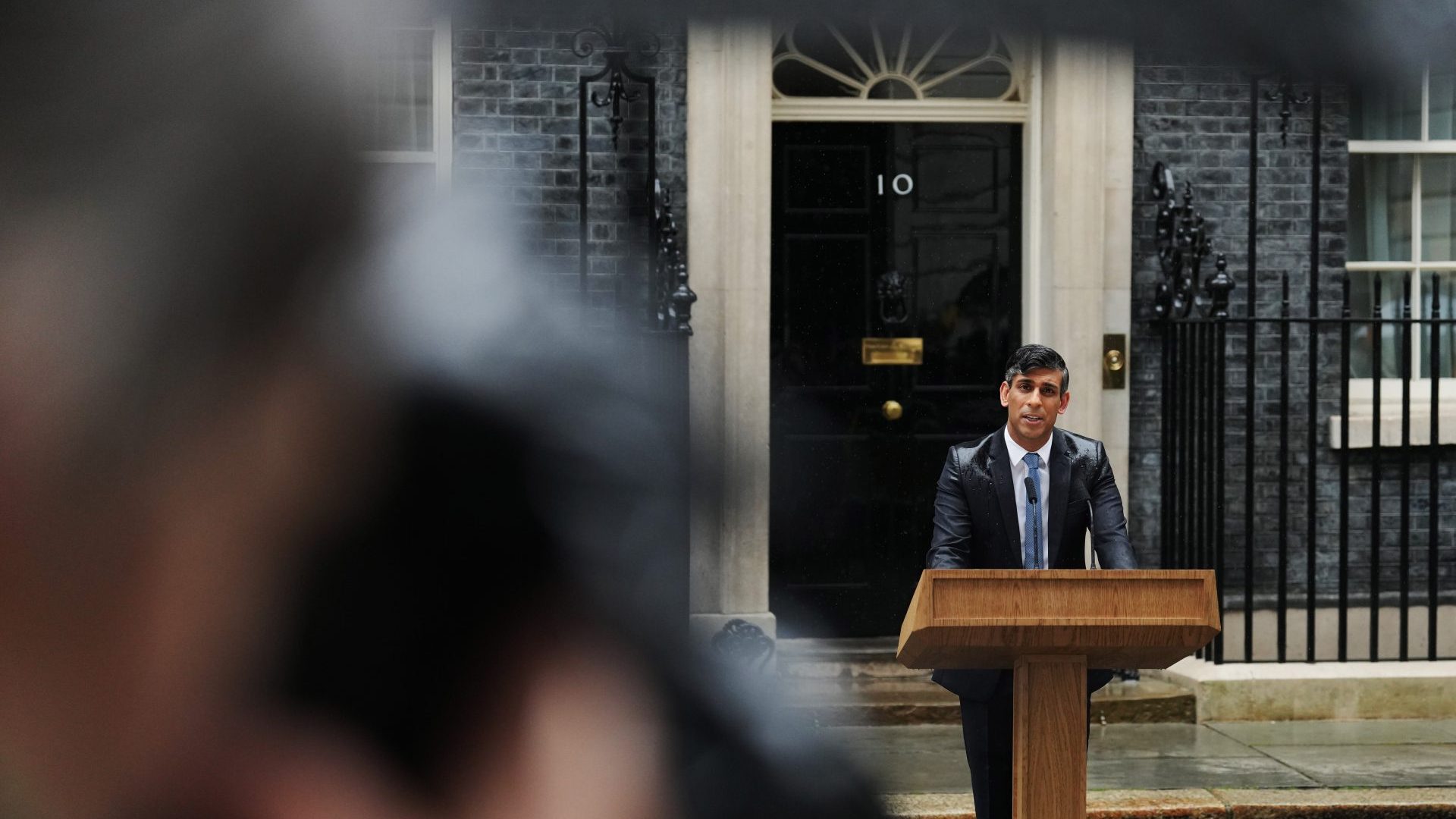A new political era is beginning in Britain. Labour’s Keir Starmer is heading for Downing Street in a landslide, with the Conservatives having been routed. Rishi Sunak’s political career has ended in humiliation and his party are on course to lose over 235 seats.
Labour are on course for 411 seats and a majority of 172 in a vindication of its leader’s strategy of dragging the party back towards the centre and promising cautious change. Starmer told jubilant supporters at Tate Modern’s Turbine Hall in London’s Bankside that Britain was waking up to “the sunlight of hope” and that a burden had “finally been removed from the shoulders of this great country.”
Sunak said the British people “had delivered a sobering verdict”, for which he accepted full responsibility. The Conservatives lost a string of big names, including eight cabinet ministers, three of whom would have been serious candidates to replace Sunak – former Commons leader Penny Mordaunt, defence secretary Grant Shapps and education secretary Gillian Keegan. Brexiteers Jacob Rees-Mogg, Andrea Jenkyns and Jonathan Gullis lost their seats. Former prime minister Liz Truss, who looked shellshocked, lost in South West Norfolk.
Jeremy Hunt, Iain Duncan Smith and Esther McVey retained theirs but the Tories were predicted to finish with fewer than 125 seats – their worst-ever election result and a heavier defeat even than Arthur Balfour’s 156 seats in 1906.
The Lib Dems were on course to win 71 seats, the best result for a third party since 1923.
The Conservatives were badly damaged by a strong performance from Reform, who finished second in almost 100 seats and secured over 14% of total votes but are set to win only five seats – one more than the Greens and Plaid Cymru. Nigel Farage won in Clacton, while Lee Anderson retained his Ashfield seat.
Despite taking only 35% of the vote, Labour made gains across Britain – including nearly 40 in Scotland, where they were reduced to only one seat in 2019. They won the Scottish popular vote for the first time since 2010, increasing their vote by 18% on last time. The SNP may fall back to eight seats, a loss of 40, and its leader John Swinney said the night had been “very damaging and tough”.
The Tories were wiped out in Wales, where Labour did well despite a falling vote share. Sinn Fein tightened their grip on Northern Ireland politics, becoming the largest party.
Starmer has pulled off the remarkable feat of taking Labour from the brink of oblivion to power in less than five years, although he will be aware that he is entering No.10 thanks largely to Tory and SNP scandal and incompetence.
Starmer ran a well-managed but uninspiring campaign, reflected by the fact that his party have picked up 5% fewer votes than they did under Jeremy Corbyn in 2017, and only 1.5% more than in the Tory landslide two years later. Labour look to have won around two-thirds of the total seats with just over a third of the total votes cast.
And Labour suffered some surprising losses – including to Corbyn in Islington North. Shadow cabinet members Thangam Debbonaire and Jonathan Ashworth lost their seats, the latter to one of the so-called ‘Gaza independents’.
The party enters power under pressure to perform, and quickly – a tall order that looks even taller given the state of the country’s finances and infrastructure coupled with Labour’s relatively modest spending plans, its reluctance to raise taxes and its blindspot over Brexit.
Yet the daunting task facing them is preferable to the one facing the shattered Conservatives. It was a long and brutal election night for the Tories, who entered power in May 2010 – initially in a coalition with the Lib Dems – promising economic stability and social renewal but who have presided over a nightmarish national decline.
Britain is poorer, weaker, more isolated and more divided after a reign of error, scandal and self-indulgence scarred by partygate, austerity, cronyism, the shenanigans of Boris Johnson and his circle and the disaster of Brexit.
The Conservatives will take crumbs of comfort from the facts that their defeat is not quite as bad as the worst predictions, and that Labour have returned to power so quickly after suffering their worst result since 1935. Yet they face a period of internal soul-searching and may be pushed even further away from the centre by the insurgent challenge of Reform.
Farage, who won Clacton, will welcome the publicity a Westminster seat brings. But with net migration figures set to decrease in the months ahead, he may spend much of his first spell in the Commons – after seven failed attempts to become an MP – trying to ignite a fair votes campaign after narrowly beating the Lib Dems in vote share but receiving far fewer seats.












